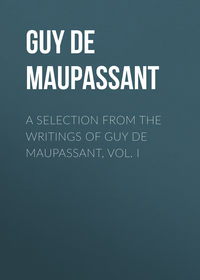Sadece Litres'te okuyun
Kitap dosya olarak indirilemez ancak uygulamamız üzerinden veya online olarak web sitemizden okunabilir.
Kitabı oku: «A Selection from the Writings of Guy De Maupassant, Vol. I», sayfa 9
Bir şeyler ters gitti, lütfen daha sonra tekrar deneyin
Türler ve etiketler
Yaş sınırı:
12+Litres'teki yayın tarihi:
30 eylül 2017Hacim:
310 s. 1 illüstrasyonÖnsöz:
Telif hakkı:
Public Domain